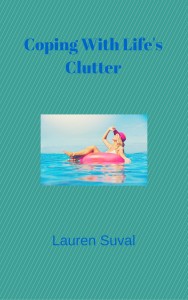 This book demonstrates how to garner resiliency and cope with adversity.
This book demonstrates how to garner resiliency and cope with adversity.
It’s a compilation of previously published articles that deal with the stresses of life — research and personal insight included.
In a way, this book served as a sense of ‘closure,’ since it’s writing I’ve been working on for the past few years; I was happy to have it all under one theme, so to speak.
Targeted Age Group:: Any age! (Twenty somethings are referenced)
What Inspired You to Write Your Book?
Many of my ideas are rooted in personal truth; it’s me simply trying to sift through my own experiences in order to make sense of the world. I sincerely hope that this short guide can inspire that in you, too.
How Did You Come up With Your Characters?
nonfiction
Book Sample
For me, one of the hardest facets of stress is relinquishing control. And though there is control in how I personally react and choose to respond to circumstances, there is also a feeling of helplessness; a feeling that control is not completely present.
I don’t have complete control over genuine and natural shifts in relationships — the progression of people growing apart. New perceptions affect awareness; they affect how connections are conceived.
I don’t have complete control of the past, and all the baggage that comprises such chapters.
I don’t have complete control over nodules in my thyroid that may or may not get bigger; that may or may not require a biopsy or further treatment.
I don’t have complete control over a competitive job market or a profession that may not lend itself to a stable, sufficient income.
From an evolutionary standpoint, the desire for a sense of control is a profound psychological need.
“If we are in control of our environment, then we have a far better chance of survival,” an article on changingminds.org stated. “Our deep subconscious mind thus gives us strong biochemical prods when we face some kind of danger (such as the fight-or-flight reaction).”
Interesting. Though life is renowned for unpredictability, individuals crave a sense of control. Some factors, though, are simply uncontrollable. Psychologists have studied this human need for decades, referring to the concept as locus of control (LOC).
“The more internal our LOC, the more we believe our own efforts determine what happens in our lives; the more external our LOC, the more we feel our lives are controlled by outside forces (chance or powerful others),” according to a 2014 article in Psychology Today.
Research illustrates that those who possess an internal LOC experience greater happiness, health, success and the ability to cope with adversity.
While, at times, we have to succumb to external variables, we can still embody an internal LOC — by how we respond to such variables and by seizing control in other areas of our lives. — Chapter One, “Stress And The Concept Of Control”
Links to Purchase eBooks – Click links for book samples and reviews
Is this book in Kindle Unlimited? Yes
Buy Coping With Life’s Clutter On Amazon
Read more about the author here.
Have you read this book? Tell us what you thought! All information was provided by the author and not edited by us. This is so you get to know the author better.
